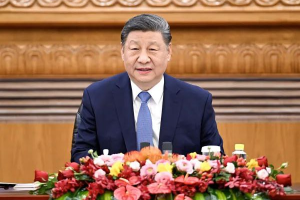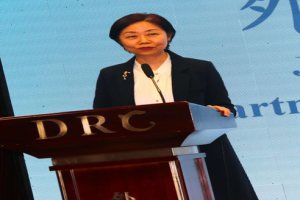KIGALI- Scientists have recently unveiled a first-ever weather forecasting model using artificial intelligence (AI) and machine learning solutions to help vulnerable African countries build resilience to climate impacts. Researchers from the Kigali-based African Institute of Mathematical Sciences (AIMS) are working on a new AI algorithm that allows various end users of weather predictions to make data-driven decisions.
According to climate experts, these efforts focus on building an intelligent weather forecasting system that is multi-dimensional and updated in real-time with a long-range and is a technology capable of simulating long-term predictions much more quickly than traditional weather models. “Key to these interventions is to improve the accuracy of weather forecasting and help African governments better prepare for and respond to weather emergencies,” Dr Sylla Mouhamadou Bamba told IPS.
Bamba is the lead author of the Intergovernmental Panel on Climate Change (IPCC) Assessment Report 6 (AR6) for the Working Group 1 contribution: The Physical Science Basis and African Institute of Mathematical Sciences (AIMS) – Canada Research Chair in Climate Change Science based in Kigali, Rwanda.
The AI model currently being tested by researchers from the Kigali-based Centre of Excellence focuses on analyzing huge data sets from past weather patterns to predict future events more efficiently and accurately than traditional methods commonly used by national meteorological agencies in Africa.
Rather than working out what the weather will generally be like in a given region or area to get forecasts, Bamba points out that developing modern statistical models using a machine learning approach to forecast sunlight, temperature, wind speed, and rainfall has the potential to predict climate change with efficient use of learning algorithms, and sensing device.
Although most national meteorological agencies in Africa have tried to enhance the accuracy of their weather forecasts, scientists say that although current technologies can forecast weather over the next few days, they cannot predict the climate over the next few years. “Many African countries are still struggling to take measures in preventing major climate-related disaster risks in an effective manner because of lack of long-term adaptation plans,” Dr Bamba says.
The latest findings by the United Nations Economic Commission for Africa (UNECA) show that as the global climate further warms, the long-term adverse effects and extreme weather events brought about by climate change will pose an increasingly serious threat to Africa’s economic development.
The limited resilience of African countries against the negative impacts of today’s climate is already resulting in lower growth and development, highlighting the consequences of an adaptation deficit, it said. Indicative findings by economic experts show lower GDP growth per capita ranging, on average, from 10 to 13 per cent (with a 50 per cent confidence interval), with the poorest countries in Africa displaying the highest adaptation deficit.
While projections show that climate change is likely to exacerbate the high vulnerability, the limited adaptive capacity of the majority of African countries, particularly the poorest, will potentially roll back development efforts in the most-affected nations, Dr Andre Kamga, the Director General of the African Centre of Meteorological Applications for Development (ACMAD). This highlighted the need to build high-resolution models.
Apart from exploiting processes to achieve early warning for all in the current climate value chain Dr Kamga stresses the pressing need to move to impact-based forecasts to enhance the quality of information given to users and to expect more efficient preparedness and response.
While Africa has contributed negligibly to the changing climate, with just about two to three percent of global emissions, the continent still stands out disproportionately as the most vulnerable region globally.
The latest report by the United Nations Environment Programme (UNEP) indicates that most of these vulnerable countries lack the resources to afford goods and services to buffer themselves and recover from the worst of the changing climate effects.
While AI and machine learning remain key solutions for researchers to overcome these challenges, Prof. Sam Yala, Centre President at the African Institute for Mathematical Sciences (AIMS) in Rwanda, is convinced that these modern weather forecasting models are important to help manage challenging issues related to improving adaptation and resilience in most African countries.
Frank Rutabingwa, Senior Regional Advisor, UN Economic Commission for Africa (UNECA) and the Coordinator Weather and Climate Information Services for Africa Programme (WISER), acknowledges that for African countries to prevent and control major climate-related disaster risks effectively, it is important to improve their forecasting and information interpretation capacities.
Latest estimates by researchers show that the skill of numerical weather prediction over Africa is still low, and there remains a widespread lack of provision of nowcasting across the continent and virtually no use of automated systems or tools.
Scientists from AIMS are convinced that this situation has significantly affected the ability of national meteorological services to issue warnings and, therefore, potentially prevent the loss of life and significant financial losses in many countries across the continent.
In Africa, a study by Dr Sylla projected an extension of torrid climate throughout West Africa by the end of the 21st century. However, other African regions, such as North Africa, East Africa, Central Africa, and Southern Africa, lack this information. “Artificial intelligence and machine learning can play a critical role by filling these data gaps on the reliability of weather forecasts that undermine understanding of the climate on the continent,” he said.
Source: IPS UN Bureau Report
THE ETHIOPIAN HERALD SUNDAY 23 JULY 2023





